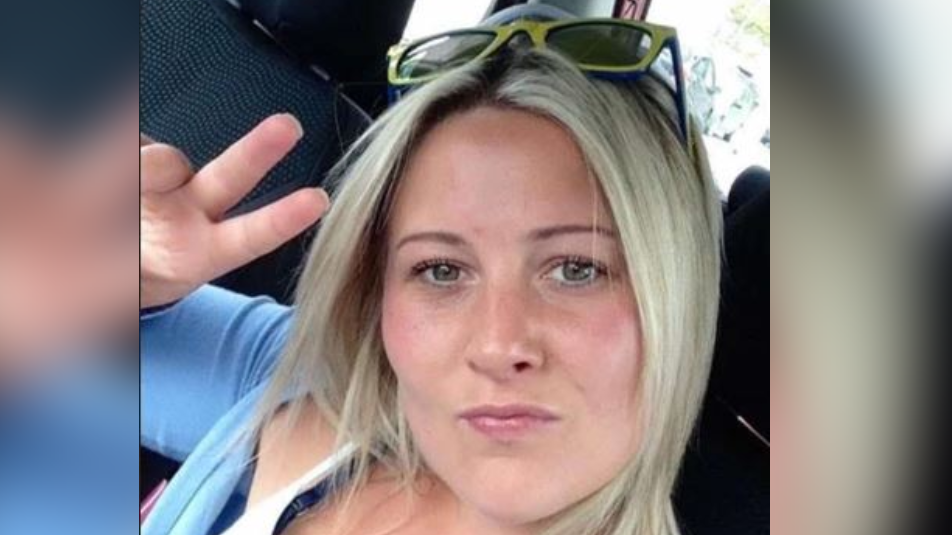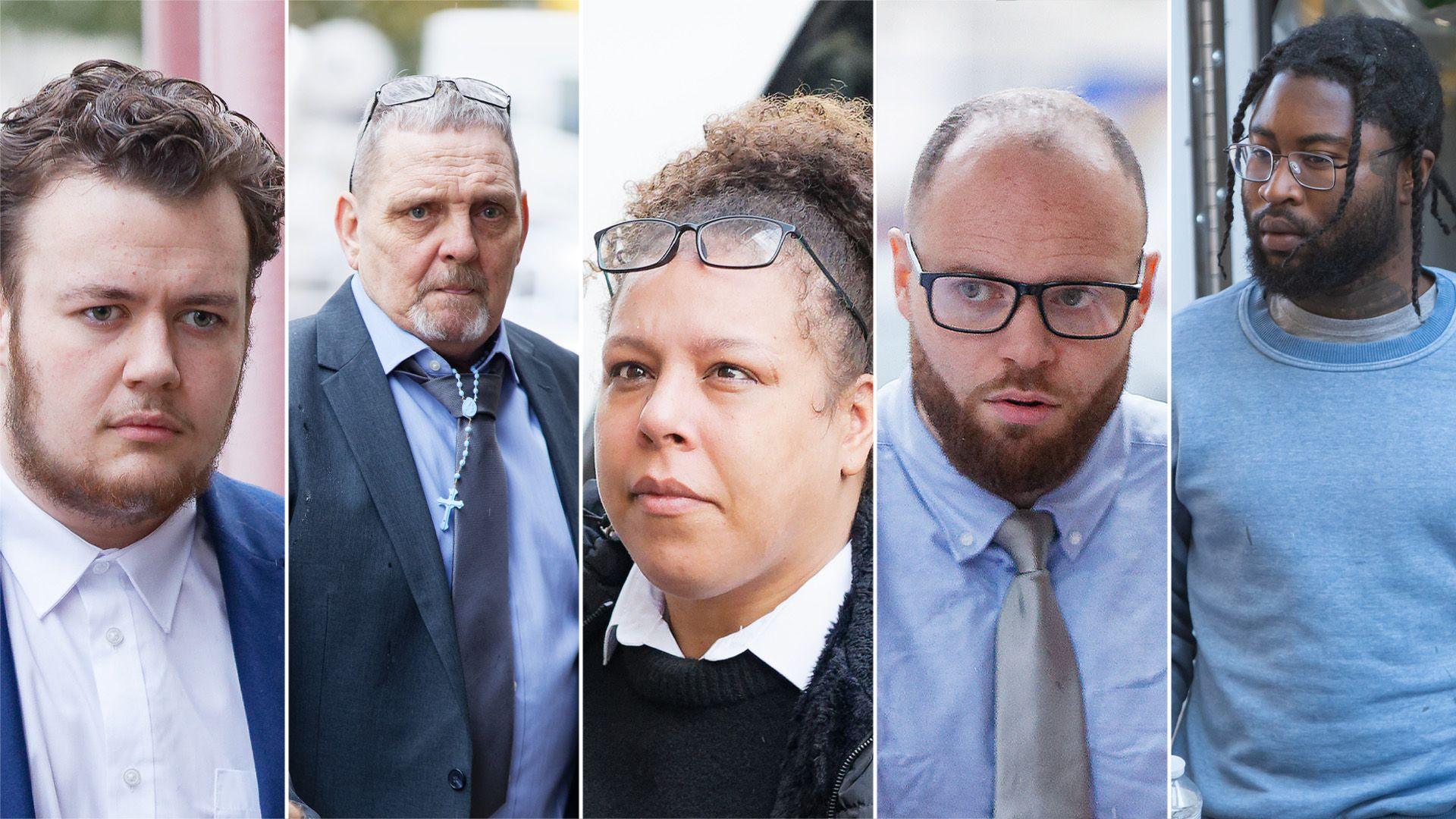DNA evidence links suspects to woman's fatal shooting - court

Joanne Penney died after being shot at a block of flats in Talbot Green on 9 March
- Published
DNA found on a gun and cartridges has linked at least two defendants to the fatal shooting of a woman in south Wales, a court has heard.
Joanne Penney, 40, was shot dead on 9 March as she opened the door of a flat at Llys Illtyd, Talbot Green, Rhondda Cynon Taf, in a killing allegedly linked to a turf war between rival drug gangs.
Marcus Huntley, 21, from St Mellons, Cardiff, has already admitted murder, with his DNA identified on the weapon and gloves.
Meanwhile, DNA from co-defendants Joshua Gordon, 27, from Leicester, and Jordan Mills-Smith, 33, from Cardiff, who both deny murder, was also found on related items.
Melissa Quailey-Dashper, 40, Kristina Ginova, 21, and Tony Porter, 68, all from Leicester, also deny murder and taking part in organised gang crime.

Marcus Huntley has admitted murder, while Tony Porter, Melissa Quailey-Dashper, Jordan Mills-Smith and Joshua Gordon deny the charges against them
On Wednesday at Cardiff Crown Court, forensic scientist Joshua Ward explained how DNA linked to Mr Mills-Smith was found in several latex gloves.
One glove, recovered from an address in Pentwyn, Cardiff, contained a "high level of gunshot residue" and DNA that was, according to Mr Ward, "a billion times more likely to have originated from Mr Mills-Smith than of someone else unrelated to him".
Another glove found in the kitchen contained DNA 63 million times more likely to belong to him, while a glove discovered in an outdoor bin had DNA 13 million times more likely to be his.
Two additional gloves recovered from the street also matched his DNA - one was 120 million times more likely, and the other a billion times more likely, to come from Mr Mills-Smith than not.
Mr Gordon's DNA was also found with a probability of 910 times more likely to belong to him than not.
The court also heard how Huntley's DNA was found on the grips and hammer of a pistol which were recovered from a "suspicious package" in a wooded area of St Mellons, Cardiff on 17 April.
The modified blank-firing pistol had been converted to fire live rounds of ammunition, the jury were told.
Mr Ward said the DNA on the pistol was "2.1 million times more likely to belong to Huntley than not", while a green latex glove wrapped around the weapon carried DNA "a billion times more likely than not".
Huntley's DNA was also "fully represented" on another latex glove found at the Pentwyn address.
Additionally, two spent gun cartridges wrapped in a separate glove in a bin at the same address were found to contain his DNA.
South Wales Police officer PC Stacey Evans also gave evidence about a string of communications including phone calls and messages between several defendants.
The court heard Huntley spent hours on 12 October checking news updates about the investigation on three separate news websites.
Previously, it was told that Ms Penney, who was staying at the flat while homeless, was cooking breakfast when she answered a knock at the door and was shot.
Despite four people being in the flat and calling 999, no one was able to perform CPR, the court was told.
Jordan Mills Smith, 33, Joshua Gordon, 27, Melissa Quailey-Dashper, 40, Kristina Ginova, 21, and Tony Porter, 68, all deny murder.
Mr Gordon, Ms Quailey-Dashper, Ms Ginova, and Mr Porter also deny participating in the activities of an organised crime gang.
The trial continues.